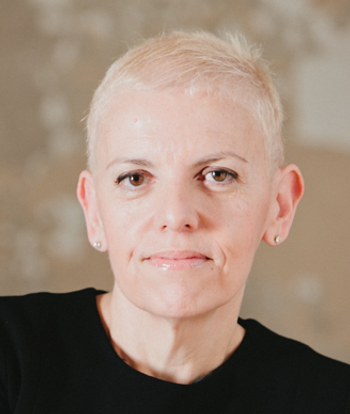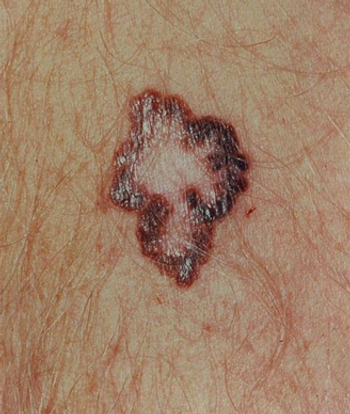
In this video from the 2015 ONS meeting, Dr. Omran discusses the high-risk of colorectal cancer among the Jordanian population and the need to promote more screening awareness.

Your AI-Trained Oncology Knowledge Connection!


In this video from the 2015 ONS meeting, Dr. Omran discusses the high-risk of colorectal cancer among the Jordanian population and the need to promote more screening awareness.

In this video from the 2015 ONS meeting, Dr. Gwyn talks about nurse practitioners delivering bad news to patients by utilizing the SPIKES protocol.

The topic of obesity and its effect on cancer risk and subsequent treatment was discussed in detail at this year's Oncology Nursing Society annual meeting in Orlando, Florida.

Patients with lung cancer are increasingly receiving targeted therapies that induce complete disease remissions, but they can also develop resistance to these drugs. New efforts are now underway to discover and develop new options for patients experiencing drug resistance.

As part of our coverage of the ONS Annual Congress, we discuss some of the unique psychosocial challenges faced by young adults with cancer.

As part of our coverage of the ONS Annual Congress, we are discussing the oncology nurse's role in distress screening in cancer patients.

As part of our coverage of the 2015 ONS Annual Congress, we discuss genetic testing for cancer patients and the role of oncology nurses.

New treatment options for melanoma continue to be developed, especially in the areas of immunotherapies and targeted agents. Oncology nurses need to be knowledgeable about the various therapies being used, indication for use, and the management of adverse events.

Oncolytic viruses are receiving more attention these days as a form of cancer treatment, and have shown promise in clinical trials. These viruses are thought not only to cause direct destruction of the tumor cells, but also to stimulate a patient's immune response.

According to a recent study, 89% of patients would be willing to use hypnosis to control side effects associated with cancer treatment. So, if patient are willing to try this, why are we not utilizing this kind of therapy more often? Myths associated with hypnosis are generally the reason.

Cancer patients who are of reproductive age (especially women) can be a challenge to treat when it comes to fertility, birth control during treatment, and treatment administration during pregnancy. And for women diagnosed with cancer during pregnancy, safe treatment options need to be considered.

With the boom of technological advances and the increased use of social media come the potential ethical issues surrounding patient privacy and confidentiality.

Many of you have heard of stereotactic radiosurgery, but do you have an understanding of what this actually is, what kind of tumors are treated, and its associated side effects?

Nurses from a New Jersey cancer center have adapted several key plans from the CDC, ONS, and other societies to create a comprehensive infection-control plan.

In this interview, Laura Zitella will be discussing challenges and considerations for management and prevention of infection in the oncology setting-in both patients with solid tumors and those with hematologic malignancies.

Oncology nurses from a community hospital in Cincinnati, Ohio implemented a two-pronged process for the safe handling of chemotherapy, improving nurses’ satisfaction and comfort levels regarding chemotherapy safety.

A team of nurses and physicians from Huntsman Cancer Institute successfully implemented key changes in their Patient Acute Change Team that increased nurse involvement and reduced the number of codes by 90% in the outpatient setting since they were put in place 2 years ago.

This interview covers standards for healthcare provider competency in offering comprehensive genetic services, and highlights genetics/genomics resources for nurses.

The integration of information technology into healthcare-such as EHRs and patient portals-is growing by leaps and bounds, and cancer care is no exception. Judy Murphy from HHS provides important perspectives on this topic.

A holistic nursing interventions study, presented at the ONS Congress, highlights its ability to reduce anxiety, nausea, and pain, and improve select vital signs.

In this interview, Tami Borneman, who is presenting a poster at the 38th Annual ONS Congress, will discuss spirituality: what it means, and how spiritual interventions can benefit patients with cancer